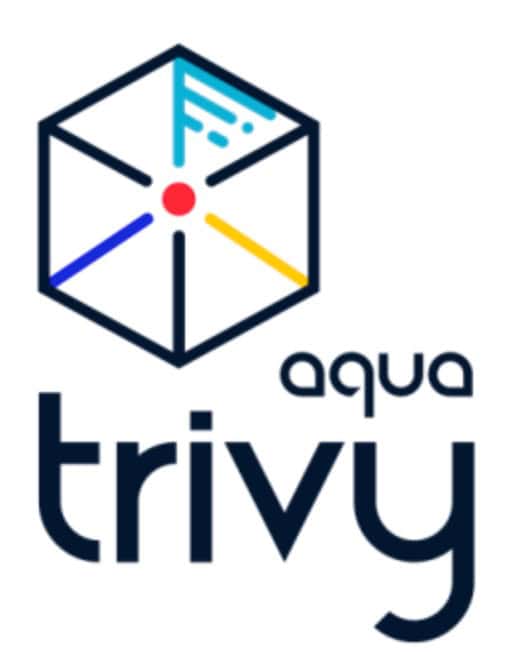Having a robust Continuous Integration and Continuous Deployment (CI/CD) pipeline is crucial. Open source tools have emerged as powerful allies in building effective DevOps workflows.
With all the options out there, which ones should you try first?
I recently spoke with Javier Alejandro Re is the CEO at Crowdar and Founder of Lippia.io and he showed me the ones he uses to create quality DevOps pipelines.
So, let's explore eight top open source recommended tools you can use at each stage of your DevOps pipeline to enhance your CI/CD pipeline quality significantly.

SonarQube: Your Code Quality Gatekeeper
SonarQube stands out as an awesome tool for code quality and static code analysis.
It helps developers maintain high code standards by identifying bugs, vulnerabilities, and code smells. With its intuitive interface and comprehensive reports, SonarQube ensures your codebase remains clean and maintainable.
Many experts I've interviewed have told me that I'd love SonarQube because it helps you improve your code and enforces good coding practices.
SonarQube Pros:
· Static code analysis
· Identifies bugs and vulnerabilities
· Tracks code smells
· Provides comprehensive quality reports
![]() It currently has 8.8k stars on GitHub.
It currently has 8.8k stars on GitHub.
More About Real World DevOps Pipelines
GitLab: The All-in-One DevOps Platform
GitLab offers more than just version control.
Experts I speak with say it's a complete DevOps platform that includes CI/CD pipelines, making it a one-stop solution for many teams. Also, GitLab's integrated approach streamlines workflows and enhances collaboration between development and operations teams.
GitLab Pros:
- Integrated version control
- Built-in CI/CD pipelines
- Collaborative development environment
- Streamlined DevOps workflows
![]() It currently has 5.1k stars on GitHub.
It currently has 5.1k stars on GitHub.
Gitleaks: Guarding Your Secrets
Security is paramount in DevOps, and Gitleaks can play a crucial role by scanning and detecting hardcoded secrets in your code. This tool helps prevent sensitive information like API keys and passwords from accidentally exposing, enhancing your overall security posture.
Gitleaks Pros:
- Scans for hardcoded secrets
- Prevents exposure of sensitive information
- Integrates seamlessly with Git repositories
- Enhances overall security posture
![]() It currently has 19.9k stars on GitHub.
It currently has 19.9k stars on GitHub.
Cloc: Keeping Track of Your Codebase
While simple in concept, Cloc (Count Lines of Code) is invaluable for understanding the size and complexity of your projects. It provides insights to help in project planning, resource allocation, and complexity management.
Cloc Pros:
- Counts lines of code
- Provides insights on project complexity
- Aids in resource allocation
- Supports multiple programming languages
![]() It currently has 19k stars on GitHub.
It currently has 19k stars on GitHub.

Trivy: Securing Your Containers
As containerization becomes ubiquitous, Trivy emerges as a vital tool for container and application vulnerability scanning. It helps identify security issues in container images and applications, ensuring your deployments are secure from the ground up.
Trivy Pros:
- Scans container images for vulnerabilities
- Identifies security issues in applications
- Supports various OS packages and language-specific dependencies
- Offers comprehensive vulnerability reports
![]() It currently has 22.4k stars on GitHub.
It currently has 22.4k stars on GitHub.

DefectDojo: Centralizing Security Insights
DefectDojo consolidates results from various security scans, providing a centralized view of your application's security status. This tool is essential for teams looking to streamline their security processes and comprehensively understand their security landscape.
DefectDojo Pros:
- Consolidates security scan results
- Provides a holistic view of application security
- Streamlines vulnerability management
- Supports integration with various security tools
![]() It currently has 3.5k stars on GitHub.
It currently has 3.5k stars on GitHub.
Automation Testing Training Courses
K6: Ensuring Performance Under Pressure
Performance testing is critical in CI/CD pipelines, and K6 excels in this domain. It allows developers to create and run performance tests easily, ensuring that applications can handle expected loads and beyond.
In an automation guild session, Nicole van der Hoeven described k6 as an open-source testing tool primarily made for load testing. It is written in Go, so it comes with all the performance benefits of Go over older languages like Java.
It is open source. It is developer and tester-friendly, but the scripting language is JavaScript, so it is a lot easier for me to get started with it than if I had to learn Go. And most importantly, K6 is a multi-tool. You can use it to script protocol-based load testing scripts and browser-based testing scripts.
k6 Pros:
- Creates and runs performance tests
- Simulates various load scenarios
- Provides detailed performance metrics
- Integrates easily with CI/CD pipelines
![]() It currently has 24.1k stars on GitHub.
It currently has 24.1k stars on GitHub.
Lippia: Streamlining Functional Testing
Lippia stands out in the functional testing space.
While it's not open source, it is built on popular open-source tools like Cucumber, Selenium, and Appium; Lippia offers a comprehensive platform for creating and managing automated tests across web, mobile, and API interfaces.
I always recommend looking at all tools that might fit your team well, not just open source. You should check it out and see all the benefits it gives you.
Lippia Pros:
- Built on popular open-source testing tools
- Supports web, mobile, and API testing
- Offers a user-friendly test management interface
- Enhances test automation efficiency
What DevOps Quality Tools Do You Recommend?
So, what did I miss? Let me know.
As I said, I know there are many options, but incorporating these open source tools into your CI/CD pipeline is an excellent place to start. These tools cover all aspects of modern software development workflows, from code quality and security to performance and functional testing.
Remember, selecting the right tools and integrating them effectively into your processes is critical to a successful DevOps implementation. Start with the tools that address your most pressing needs and gradually expand your toolkit as your team's expertise grows.
By leveraging these robust open source solutions, you can build a more efficient, secure, and robust CI/CD pipeline, ultimately leading to faster, higher-quality software releases.







